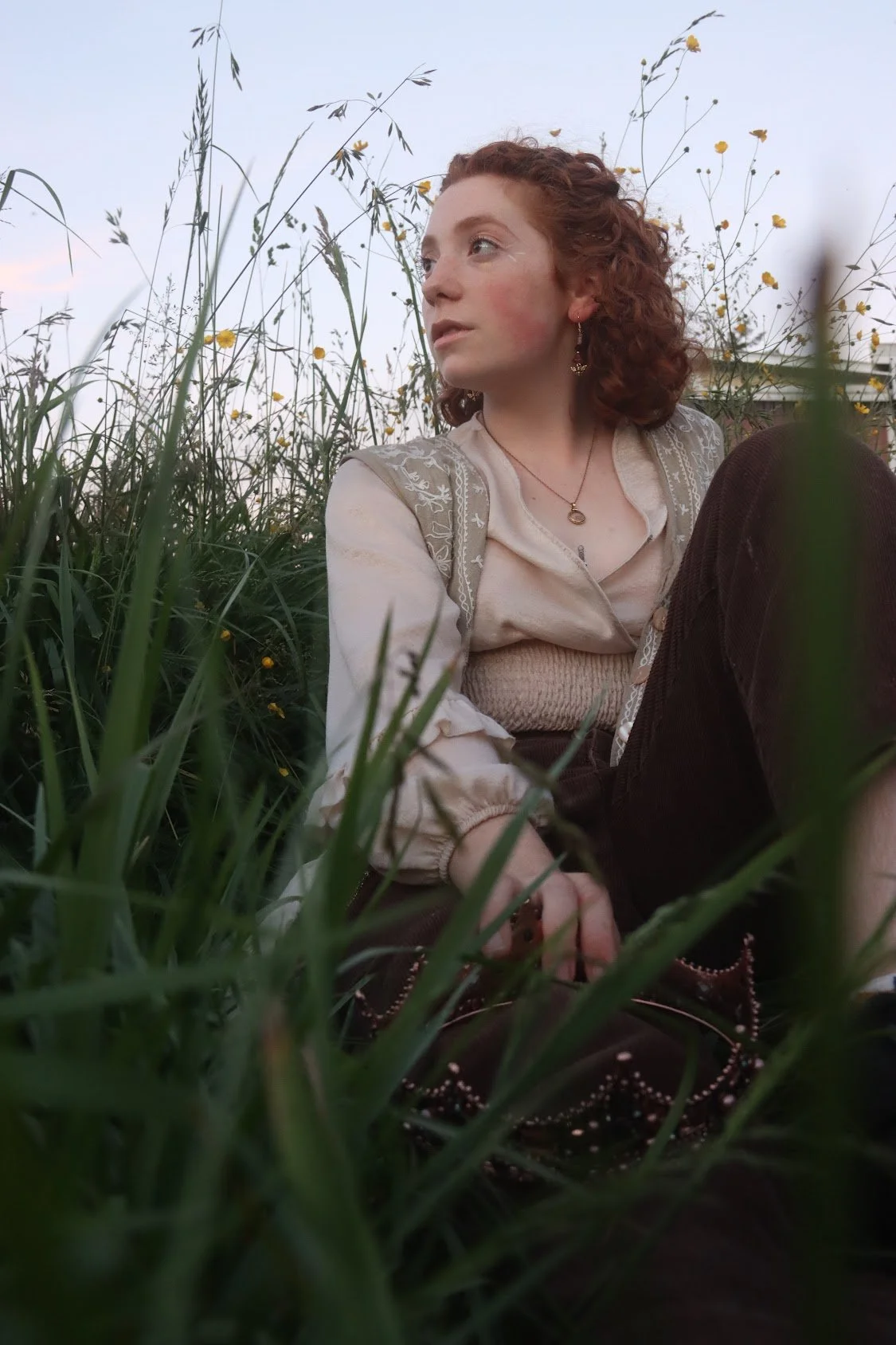REMEMBER BISCLAVRET IS A GENERATIONAL CURSE
After the lai of Marie de France
((You’re terrified your husband will hurt you, and it’s true. Because you were afraid, what he does has always been your fault.))
Imagine you are in love.
Imagine you are in love.
Imagine you are in love.
He is beautiful. There is no part of you that would call him kind, but there is a part that would call him good. You are told to believe this so you do. Sometimes you have reason to believe it so you do. This goodness is difficult to come by, even in small fits: you spend your days in a court where the king stares down at you and you know that he owns you. He is king, he is a man, you should be grateful for his lechery. What an honor. What a blessing.
Imagine you are in love: a husband, your lord, means you are protected. He is good, so glances stay glances. And then one day, in the bed you share, fingers around your middle he says, on the full-moon I hurt everything I am around. I shed my skin. I want to devour. And you know devour well, this verb that colors the rest of your life, this verb you thought he was safe from. It is the oldest fear. It is bigger than love because it has to be, your own safety —
Who can blame you?
Who can blame you?
Who can —
You know the answer to the question is everyone, but you are clever because you have survived this long. He told you the trick: hide his clothes, and he stays a wolf. You hide his clothes. He stays a wolf.
Imagine you are in love.
Imagine you are in love.
Imagine. Try to imagine.
Weeks pass. Try to imagine.
The rumor comes too late: you’ve been playing in mourning, and in some ways, it’s true. You do mourn. There’s a lot to mourn. He was beautiful. You thought he was good.
Devourer.
The rumor comes too late: The king has a new pet. It is a wolf. He is beautiful, and there is no part of you that would call him kind.
You see the wolf. The wolf sees you.
Do you remember the verb?
The wolf, you are told, is good. You are told this around the new wound in your face. He sleeps at the king’s feet, has for weeks, eats so gently out of his hand that a child, so long as the child was good, could sit right beside it and put his face between its maw. You are told this around the hole in your face. You are bleeding. You are missing your nose. You can see the skin in the wolf’s mouth. The wolf, you are told, is good. The wolf is all snout and sharp teeth. It doesn’t have a tongue that works like yours, not one that can move back and forth to form words. There aren’t lips like yours, not anymore, not since you hid away his clothes only for this to come to pass anyways. There’s a hole in your fucking face and you’re bleeding all over your court dress. The wolf’s mouth forms the words anyway. Wife. It’s a curse. Betrayer.
The wolf, you are told, is good. What does it mean that the wolf could see your wickedness so plainly? To attack you on sight? The king is adamant, and he is king. The wolf is good. What does that make you?
He bit off my fucking nose, you say, and it’s like no one can hear you, or maybe they can and it doesn’t matter. They see the words in his wolf-lips, betrayer — worse — wife. The wolf is good, and you’ve been given a new name. Who can blame you? You know the answer to this question.
Five lines dedicated to: your torture and exile. Twenty lines dedicated to: the restoration of your husband, his indefatigable goodness. He bit off my fucking nose, you say again, but it’s not given a line in the poem a second time. In the future you birth children, and they are missing their noses too, and in three hundred years your descendants tell Lacan he was right.
This stretches forward — the lesson is recorded here and in a hundred other places. It is the song in your heart: you should be afraid. You are not allowed to act on this fear.
Remember that you were in love. Remember it was you who ruined it.
Say thank-you for the lesson you were taught.
Abigail Eliza
Abigail Eliza (she/they) writes the Audio Verse Award-winning audio drama Back Again, Back Again, a story about alternate realms, ex-prophecy children, and queer girls with swords. Their work is otherwise scattered online, including in Rainy Day, Bricolage, and Washington State’s Queer Poetry Anthology. A middle school teacher by day, she is a tournament longsword fighter, contra dancer, and intrepid explorer of Seattle’s parks at most other times. She can be found on Instagram and Bluesky @abigailelizawrites
